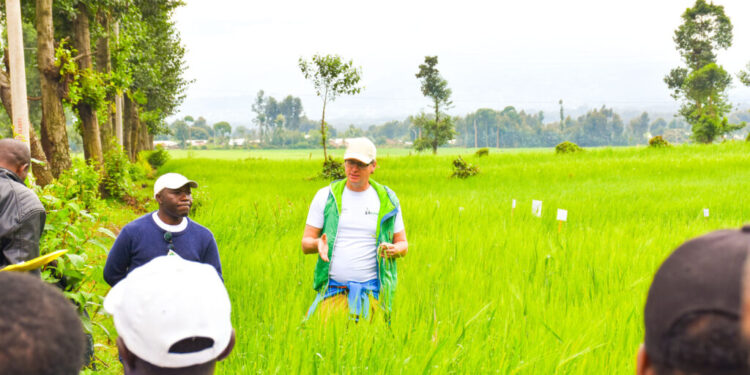Rwanda’s largest beverage company, BRALIRWA Plc, is expanding its impact on the national economy by strengthening local supply chains and supporting thousands of farmers through its beer production activities.
In 2023, the global brewing industry supported more than 6.4 million agriculture-related jobs, according to international estimates. Much of the raw material — particularly barley — comes from smallholder farmers who grow millions of tons annually to supply brewing companies. Rwanda is now part of that shift toward local sourcing, with BRALIRWA investing heavily in domestic agriculture.
By relying on locally produced ingredients, BRALIRWA is channeling more resources into Rwanda’s rural economy. The company has focused on using homegrown materials in its brewing process, a move it says is designed to uplift local farmers and reduce dependency on imports.
Since 2019, BRALIRWA has been among the pioneers introducing barley farming in Rwanda — a crop previously sourced mainly from Europe. The company now partners with smallholder farmers and cooperatives, offering them high-quality seed varieties, agronomic training, modern farming tools, and guaranteed market access.
“This partnership goes beyond simply supplying raw materials. It has transformed our livelihoods,” said Nkurunziza, a farmer in Gicumbi District. “BRALIRWA provides timely equipment and purchases our produce on time. I started with 10 hectares and now manage 50.”
Company officials say such collaborations are central to its long-term vision. Samuel Murumu, BRALIRWA’s Director of Supply and Procurement, said the company is committed to community-centered investment and sustainable sourcing.
“We have committed to using local ingredients in a sustainable way. Through our ‘Brew a Better World’ initiative, our goal is to empower communities where we operate,” Murumu said.
The company aims to scale up its sourcing significantly. By 2030, it plans to purchase up to 7,000 metric tons of barley and 21,000 metric tons of maize from Rwandan farmers annually. BRALIRWA says it will continue investing in building the capacity of local producers to meet these targets.
Beyond agriculture, the beverage sector also contributes substantially to Rwanda’s economy through tax revenues, job creation, logistics, tourism, and hospitality. Officials note that the ripple effect extends from farms to transporters, distributors, and service providers in the food and drink industry.
As Rwanda advances its strategy to build a sustainable industrial base, BRALIRWA’s business model is increasingly viewed as a blueprint for how private investment can align commercial interests with inclusive, long-term development goals.











